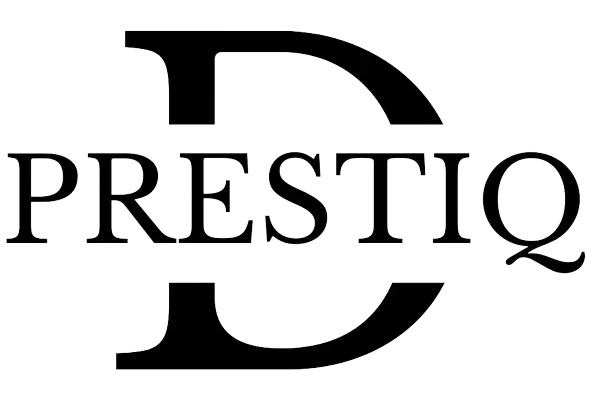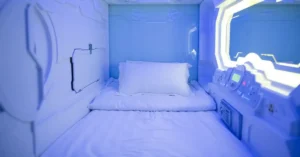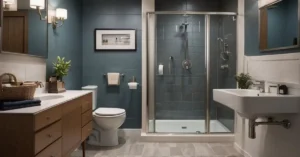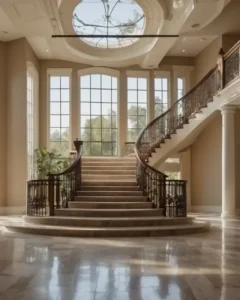Have you ever stayed in a smart hotel room? These technologically advanced spaces are becoming increasingly popular in the hospitality industry, offering guests a new level of connectivity and convenience. With the help of Internet of Things (IoT) technology, smart hotel rooms can automate and personalize various aspects of the guest experience, from controlling the temperature and lighting to ordering room service and adjusting the blinds.
As someone who loves to travel and stay in unique accommodations, I was excited to learn more about smart hotel rooms and how they are transforming the hotel industry. By leveraging smart home technologies like smart locks, smart thermostats, and voice control front ends, these rooms offer a seamless and intuitive experience for guests. Imagine walking into your hotel room and having the lights automatically turn on, the curtains open, and your favorite music start playing – all without lifting a finger.
Key Features of Smart Hotel Rooms
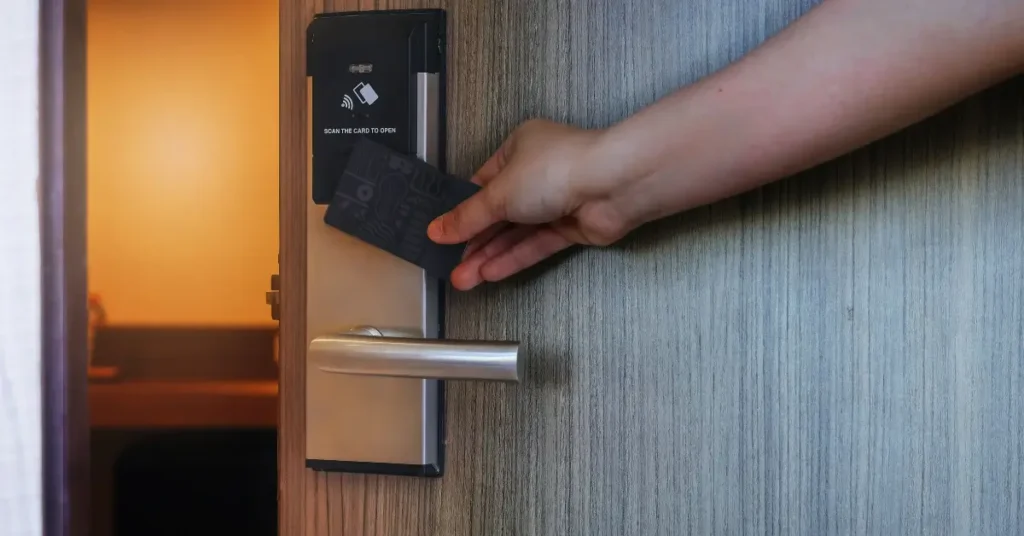
As a frequent traveler, I’ve experienced all sorts of hotel rooms. However, nothing compares to the comfort and convenience of a smart hotel room. Smart hotel rooms are equipped with the latest technology to provide guests with an exceptional experience. In this section, we’ll explore the key features of smart hotel rooms.
Automated Check-In and Check-Out
One of the most significant benefits of smart hotel rooms is the automated check-in and check-out process. This feature eliminates the need to wait in long queues at the reception desk. Guests can check-in using their smartphones or tablets, and the room key is sent directly to their device. Similarly, guests can check-out by simply leaving the room, and the bill is automatically charged to their account.
Personalized Room Settings
Smart hotel rooms allow guests to customize their room settings according to their preferences. Guests can control the lighting, temperature, and curtains using their smartphones or tablets. The room settings can be saved, so guests don’t have to adjust them every time they return to their room. This feature provides a comfortable and personalized experience for guests.
Integrated Entertainment Systems
Smart hotel rooms are equipped with integrated entertainment systems that allow guests to access a wide range of content. Guests can stream movies, TV shows, and music on high-definition screens. The entertainment systems can be controlled using smartphones or tablets, providing a seamless and convenient experience for guests.
Smart Security Features
Smart hotel rooms are designed with robust security features to ensure the safety of guests. These features include smart locks, surveillance cameras, and motion sensors. Guests can use their smartphones or tablets to control the security features, providing them with peace of mind during their stay.
In conclusion, smart hotel rooms offer an unparalleled experience for guests. Automated check-in and check-out, personalized room settings, integrated entertainment systems, and smart security features are just a few of the features that make smart hotel rooms stand out.
Benefits of Smart Hotel Rooms
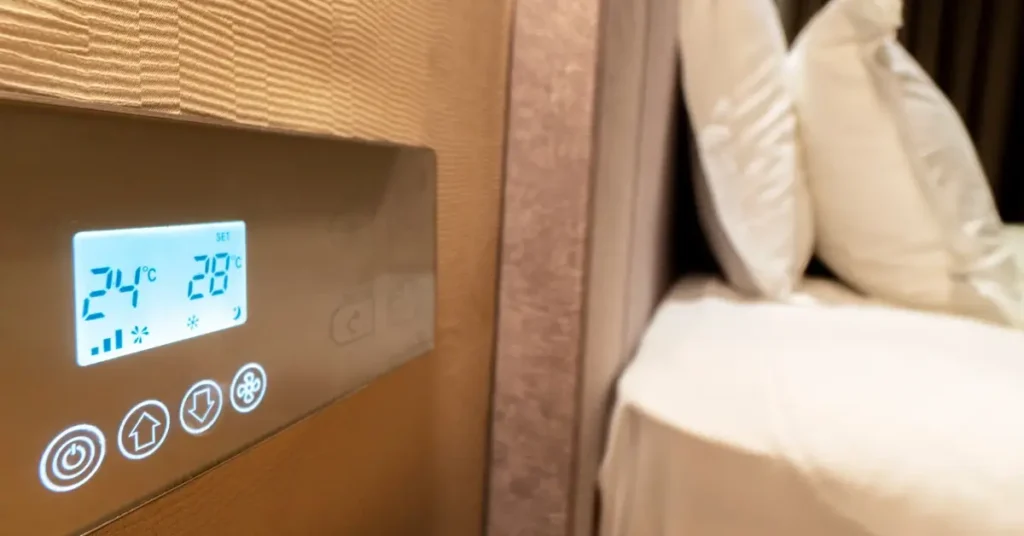
In this section, I will discuss the benefits of smart hotel rooms, including enhanced guest experience, operational efficiency, and energy efficiency.
Enhanced Guest Experience
Smart hotel rooms are designed to provide guests with a more comfortable and personalized experience. With the help of smart devices, guests can control room temperature, lighting, and even the TV with the touch of a button. Smart hotel rooms also offer features like voice-activated assistants, allowing guests to make requests without having to pick up the phone. Guests can also use their smartphones to access hotel services, order room service, and even check out.
Operational Efficiency
Smart hotel rooms can help hotels operate more efficiently, reducing costs and improving service. For example, hotels can use sensors to detect when a room is occupied and adjust the temperature and lighting accordingly. This can help reduce energy consumption and save money on utility bills. Hotels can also use smart devices to automate tasks like housekeeping and room service, freeing up staff to focus on more important tasks.
Energy Efficiency
Smart hotel rooms can help hotels reduce their carbon footprint and become more environmentally friendly. With the help of smart devices, hotels can monitor energy usage and identify areas where they can save energy. For example, hotels can use sensors to turn off lights and appliances when a room is unoccupied, reducing energy waste. Hotels can also use smart thermostats to regulate room temperature, reducing energy consumption and saving money on utility bills.
Challenges in Implementing Smart Hotel Rooms
As exciting as the prospect of smart hotel rooms may be, implementing this technology is not without its challenges. Here are some of the most significant challenges that hotels face when trying to implement smart hotel rooms.
High Initial Investment
One of the most significant challenges of implementing smart hotel rooms is the high initial investment required. Upgrading the infrastructure of a hotel to support smart technology can be a costly endeavor. This includes installing sensors, smart locks, and other devices that can communicate with each other and the hotel’s central management system. The cost of retrofitting an existing hotel with smart technology can be prohibitively expensive, especially for smaller hotels.
Data Security Concerns
Another challenge of implementing smart hotel rooms is data security. Smart devices collect and transmit a vast amount of data, including guest information, room occupancy, and energy usage. This data is vulnerable to cyber-attacks, which can compromise guest privacy and hotel security. Hotels need to ensure that their smart devices are secure and that they have robust data protection policies in place to prevent data breaches.
Technical Glitches and Maintenance
Smart hotel rooms rely on a complex network of interconnected devices, and technical glitches are inevitable. These glitches can cause inconvenience to guests and staff and may even result in lost revenue. Hotels need to have a robust maintenance and support system in place to ensure that smart devices are functioning correctly and that any issues are resolved quickly.
Future of Smart Hotel Rooms
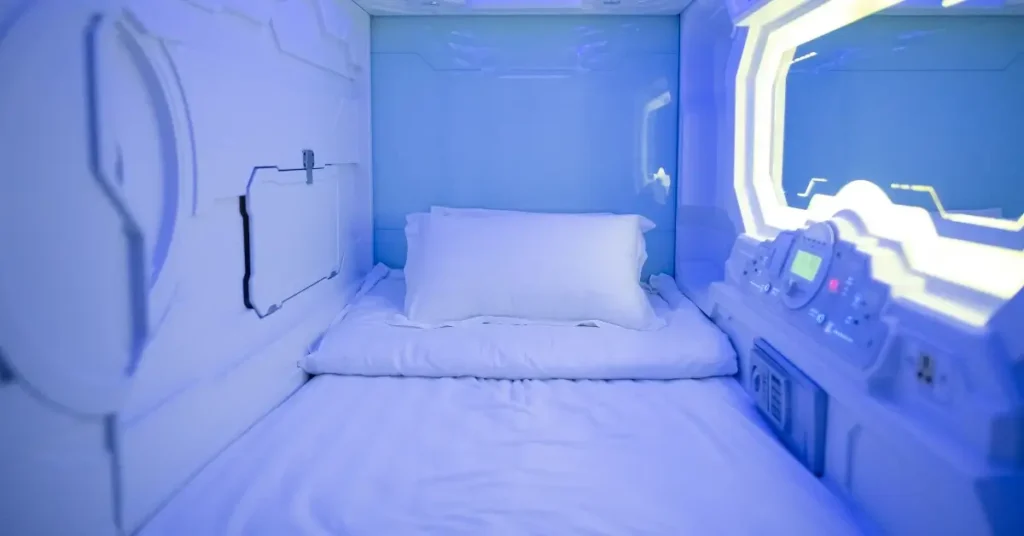
Adoption of IoT
The Internet of Things (IoT) has revolutionized the way we interact with technology. In smart hotel rooms, IoT devices can be used to control everything from lighting and temperature to entertainment systems and room service. Guests can use their smartphones or voice assistants to adjust the settings in their room, order food, and even book activities. As more hotels adopt IoT, we can expect to see even more innovative uses of this technology, such as smart mirrors that can display news and weather updates, or sensors that can detect when a guest is in the room and adjust the settings accordingly.
Artificial Intelligence and Machine Learning
Artificial intelligence (AI) and machine learning have the potential to transform the hotel industry. In smart hotel rooms, AI can be used to personalize the guest experience by analyzing data such as past bookings, preferences, and feedback. For example, a hotel could use AI to suggest activities or restaurants based on a guest’s interests, or to recommend room upgrades based on their previous stays. Machine learning can also be used to optimize hotel operations, such as predicting when a room will need cleaning or when a guest is likely to check out.
Sustainable and Green Technologies
As travelers become more environmentally conscious, hotels are looking for ways to reduce their carbon footprint. Smart hotel rooms can help by using sustainable and green technologies, such as energy-efficient lighting and heating systems, smart thermostats that adjust based on occupancy, and water-saving fixtures. Hotels can also use IoT sensors to monitor energy usage and identify areas where they can reduce waste. By adopting these technologies, hotels can not only save money on their energy bills but also attract guests who prioritize sustainability.
FAQ
What is a Smart Hotel?
A smart hotel is a property that uses smart technology to enhance the guest experience. It includes internet-connected devices, such as IoT-enabled thermostats, lighting, and entertainment systems, as well as AI-powered concierges, mobile check-in, and other features that allow guests to control their stay through their smartphones or voice commands.
What is Smart Check In?
Smart check-in is a feature in smart hotels that allows guests to check in to their rooms using their smartphones or tablets. It eliminates the need for traditional check-in procedures at the front desk, providing a more seamless and efficient experience for guests.
If you liked this blog article about the topic: Smart Hotel Room, don’t forget to leave us a comment down below to tell us about your experience.
Feel free to also check out our Articles from the category “All about Smarthome“.
